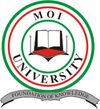Funded projects
CERM-ESA
East and South African-German Centre of Excellence for Educational Research Methodologies and Management
Duration: 10/2014 - 12/2028
Funded by: DAAD with funds from the Federal Foreign Office
Funding amount: 4,078 million euros
Partners: Moi University, Nelson Mandela University, University of Dar es Salaam, Uganda Management Institute
Contact: cermesa@uol.de
DIGI-FACE
Digital Initiative of the Centres of African Excellence
Duration: 10/2019 - 12/2025
(with extension option)
Funded by: DAAD with funds from the Federal Foreign Office
Funding amount: 3.38 million euros
Partners: Kehl University of Applied Sciences (leading university), Nelson Mandela University
Contact: digiface@uol.de
Comp3Modules
Competence Development for the DAAD In-Country / In-Region Scholarship Holders in Sub-Saharan Africa - Framework Agreement with the DAAD
Duration: 7/2024 - 6/2030
Commissioned by: DAAD Awarding Organisation
(Africa Division - ST32)
Funding amount: 1.125 million euros
Partner: Nelson Mandela University, Kehl University of Applied Sciences
Contact: malve.moellendorff@uol.de
South-North Cooperation in Education
Duration: annual application
(funding since 1999)
Funding body: Lower Saxony Ministry of Science and Culture (MWK) Title Group 78 Development Cooperation and Humanitarian Aid
Funding amount: between €15,000 and €40,000 per year
Partner: Nelson Mandela University, University of Dar es Salaam
Contact: malve.moellendorff@uol.de
Focus on cooperation with Africa
Since the late 1990s, the Department of Educational Sciences has been cooperating with universities in South and East Africa, in particular with the Schools of Education at our partner universities:
Sustainable Development Goals
In line with the United Nations' Sustainable Development Goals, we focus on reliable and long-term partnerships (Goal 17) in order to jointly implement measures to promote high-quality education (Goal 4), gender equality (Goal 5), reduced inequalities (Goal 10) and climate action (Goal 13). In contrast to traditional university research projects, this is an educational cooperation that integrates the areas of university education, research, further education & competence development, as well as transdisciplinary engagement (e.g. teacher training, school development, non-university networks). This approach requires that we work on an interdisciplinary basis with academics from various subject fields and expertise at the University of Oldenburg and our partner universities, as well as on a transdisciplinary basis with non-university, governmental and non-governmental organisations, initiatives and funding bodies.
Demand-orientation
The immense challenges facing the South and East African education sectors, which result in particular from the devastating colonial and apartheid era and global inequalities, are being felt by the partner institutions in many different ways.
The need for international exchange, high-quality study and qualification programmes, as well as excellent research and further education is high. These needs are at the centre of our cooperation activities. We are supported in particular by the German Academic Exchange Service (DAAD) within the framework of the Specialist Centres Programme (with funding from the Federal Foreign Office), the In-Country/In-Region Scholarship Programme for Sub-Saharan Africa (with funding from the BMZ), as well as the MWK Lower Saxony within the framework of the regional partnership with the Eastern Cape (South Africa) and Tanzania (development cooperation).
North-South context
For us in Oldenburg, this always involves questions of positioning, racism and colonial continuities, as well as an approach of learning with and from each other that goes in all directions. The given financing and administrative structures of our projects and measures, which follow national objectives of international relations and the impact logic of development cooperation, often stand in the way of an equal partnership. We see it as part of our work to recognise these asymmetrical structures as such, to reflect on them and to seek solutions together with our partners, funding bodies and university administrations in order to eliminate imbalances caused by administrative hurdles and guidelines wherever possible. Within the projects, all decisions are made on a parity basis, i.e. all partners vote and steer the projects together.









